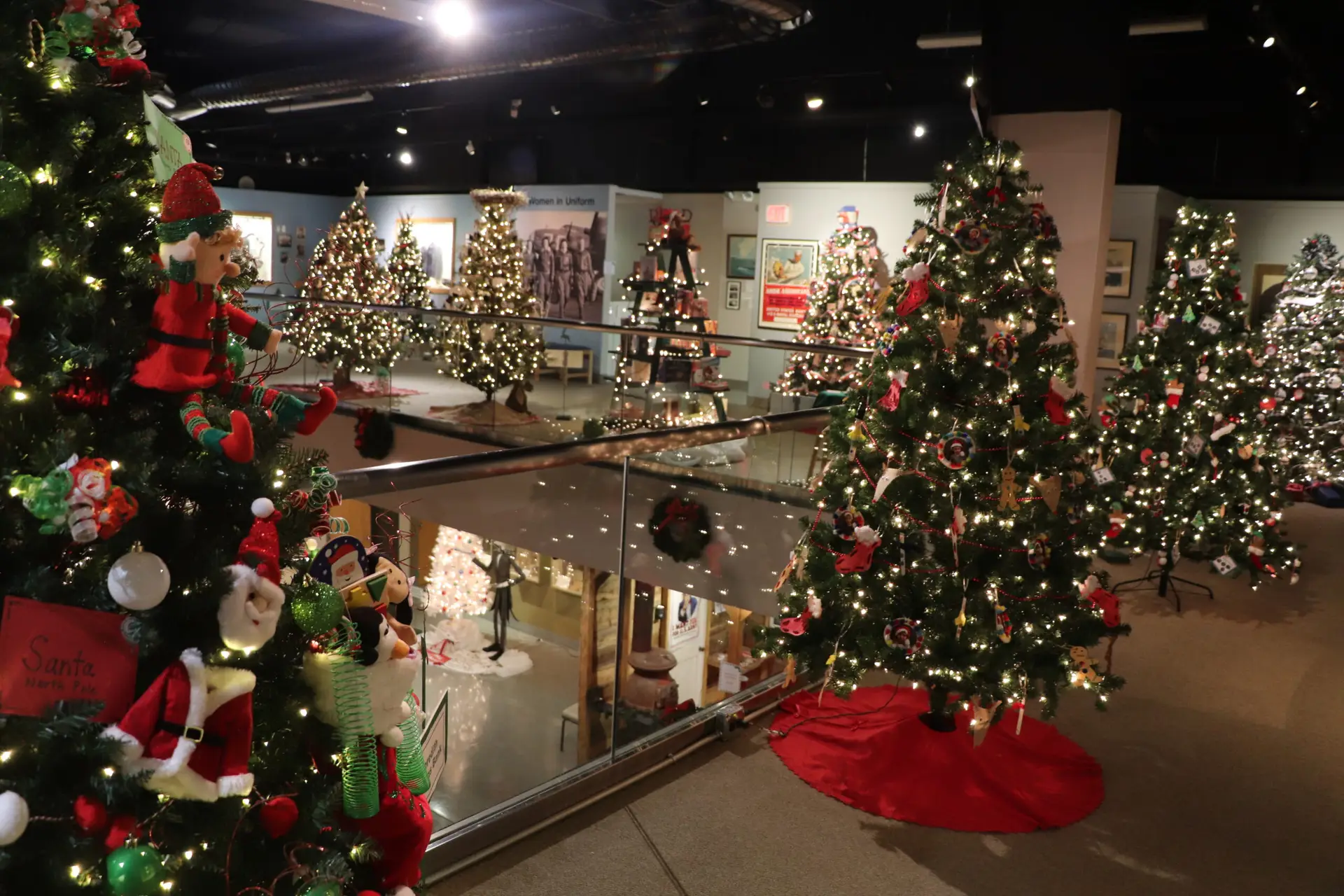Home / Education Program
The Wright Museum is the region’s leading resource for educators and learners of all ages interested in the Second World War. The museum shares its rich collection of artifacts through dozens of exhibits that illustrate the American WWII experience.
The goals of the education program are to inspire students by having them analyze World War II America from the home front perspective, understand the impact of a nation united and willing to make sacrifices in order to reach a common goal, and to compare and contrast changes in society that have taken place over time.
When students arrive at the museum, their tour will begin with a brief orientation and video to introduce or reinforce the broader historical context of the museum’s exhibits. Students, with their activities in hand, will then be able to make their way through the museum at their own pace. Our Wright Museum docents are available throughout the visit to highlight various aspects of the museum and to answer any and all questions that students might have.
A visit to the Wright Museum is an ideal introduction to or culmination of your WWII instructional unit. Call the Wright Museum today at (603) 569-1212 to learn more and schedule your class visit today! The rate for school groups is $5.00 per student. Groups must be scheduled in advance.
In order to make our education program relevant to the lessons being taught in the classroom, we have designed a curriculum for the museum that connects to the K-12 Social Studies New Hampshire Curriculum Framework. Using this framework at the core of the program, we then divided the museum into three separate categories: Home Front Gallery, Time Tunnel, and Military Gallery and related Mezzanine. Within each section, we outlined key concepts, essential questions, and student learning objectives. With this foundation, activities have been designed to help students meet the objectives in an engaging and interactive way.
The activity pages are designed to meet the student learning objectives that were developed from the K-12 Social Studies New Hampshire Curriculum Framework. Due to the variety of the activities that have been created, teachers have the flexibility to choose which activities will best meet the needs of their students. Additionally, we recognize that our educators across the state have knowledge and skills to offer the museum and we would appreciate the opportunity to collaborate in order to develop and integrate lessons that would best meet the needs of the content and classroom.
The activities are broken into two primary groups; grades 4-6 and grades 7-12. The activities range in level of difficulty based upon the topic and age level being targeted. The activities will help to develop the skills of collaboration, creativity, critical thinking, and close reading. Some activities are designed to take students throughout the entire museum and others are designed to cover different sections of the museum that can be combined and interchanged with many of the other activities offered.
When school groups come to the museum, we ask that teachers choose which activities they would like to complete in advance, and make the necessary copies for their students.
Do not delete this panel
We strongly encourage teachers to reach out to us in order to collaborate, design, and implement lessons that best meet the needs of their discipline and the students they have. Below are some suggestions of other lessons we could help design:
Economics: Moving from the depression to a booming 1950s economy.
Art: Realism to abstraction, European influences.
Literature: How publishing changed, literary styles influences by European examples.
Fashion: New clothing materials and styles based in European fashion.
Politics/Law: The Nuremberg Trials (war crimes); isolationism vs. global engagement.
Sports: Women’s professional baseball
Education: GI Bill influence
Social Issues: Changing roles of women, rising African American middle class.
Math: How math was used to create the Atomic bomb and other military technology.
Psychology: Influences of POW, Holocaust experiences, shell shock, and brain washing.

2025 Festival of Trees
Visit the Festival of Trees website to learn about this event.